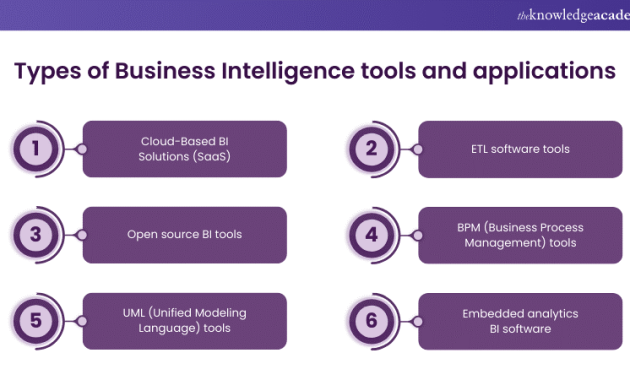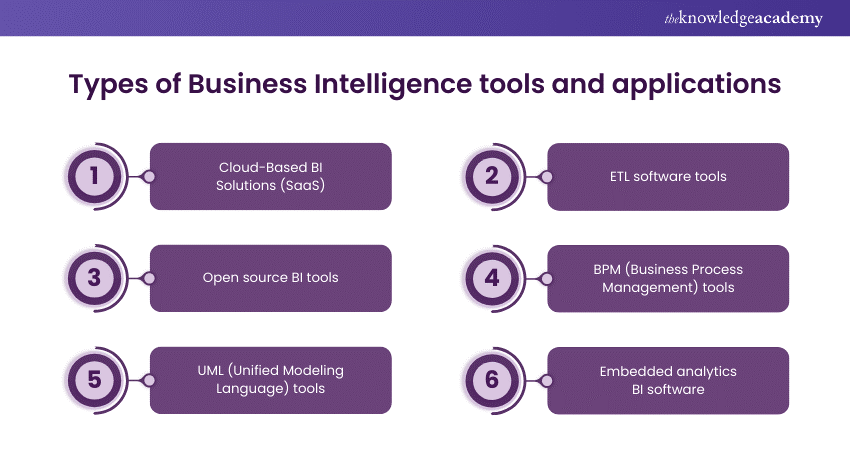
Business Intelligence Tools That Speak Plain English: Decoding the Data Deluge
In today’s data-driven world, businesses are awash in information. Mountains of data are generated every second, promising insights that can revolutionize decision-making. But the promise often feels out of reach. Why? Because traditional Business Intelligence (BI) tools can be complex, requiring specialized skills and a deep understanding of technical jargon. The good news? A new generation of Business Intelligence tools is emerging, designed to speak plain English. These tools empower users, regardless of their technical expertise, to understand and leverage their data.
This article will explore the rise of these user-friendly BI solutions. We will examine their key features, benefits, and how they are transforming the way businesses operate. We will also look at some of the leading Business Intelligence tools in the market that are making data accessible to everyone. The ability to understand data is becoming a critical skill. These tools are essential for any organization seeking a competitive edge.
The Data Deluge: A Challenge and an Opportunity
The volume of data generated globally is staggering. Every click, transaction, and interaction contributes to a massive digital footprint. This data holds the key to understanding customer behavior, identifying market trends, and optimizing business processes. However, this data is only valuable if it can be analyzed and interpreted. The challenge lies in extracting meaningful insights from this vast ocean of information. This is where Business Intelligence tools come into play.
Traditional BI tools often require users to write complex queries, build intricate dashboards, and navigate a steep learning curve. This creates a bottleneck. Only a small group of specialists can access and utilize the data. This limits the potential of data-driven decision-making across the organization. The solution lies in tools that can translate complex data into plain English.
The Rise of User-Friendly Business Intelligence Tools
The demand for accessible data has fueled innovation in the BI space. Developers are now focusing on creating tools that are intuitive, easy to use, and require minimal technical expertise. These tools offer a range of features designed to simplify the data analysis process. They are designed to speak plain English. They are transforming how businesses interact with their data.
Key Features of User-Friendly BI Tools
- Natural Language Querying (NLQ): This allows users to ask questions about their data in plain English. The tool then translates these questions into complex queries and provides the answers in an easily understandable format.
- Automated Data Visualization: These tools automatically generate charts, graphs, and other visualizations to present data in a clear and concise manner. Users can quickly identify trends and patterns without having to manually create visualizations.
- Drag-and-Drop Dashboards: Users can create custom dashboards by simply dragging and dropping data elements. This makes it easy to monitor key performance indicators (KPIs) and track progress towards business goals.
- Pre-built Templates and Reports: Many tools offer pre-designed templates and reports that can be customized to meet specific business needs. This saves time and effort, allowing users to quickly generate insights.
- Mobile Accessibility: The ability to access data and insights on the go is becoming increasingly important. Many user-friendly BI tools offer mobile apps that allow users to view dashboards and reports from their smartphones and tablets.
Benefits of Using Business Intelligence Tools That Speak Plain English
The adoption of user-friendly Business Intelligence tools offers a multitude of benefits for businesses of all sizes. These tools democratize data access, empowering a wider range of users to make data-driven decisions. This leads to improved efficiency, increased profitability, and a stronger competitive advantage. The benefits of these tools are clear.
Improved Decision-Making
By making data accessible to everyone, these tools enable more informed and data-driven decisions across the organization. Employees at all levels can access the insights they need to make better decisions. This leads to improved outcomes in all areas of the business. Plain English makes it easy to understand.
Increased Efficiency
Automated data analysis and reporting reduce the time and effort required to gather and interpret data. This frees up employees to focus on more strategic tasks. This leads to increased efficiency and productivity. These tools streamline the workflow.
Enhanced Collaboration
User-friendly BI tools make it easier for teams to collaborate on data analysis and share insights. Dashboards and reports can be easily shared and discussed, fostering a more data-driven culture. This promotes better communication and teamwork.
Faster Time to Insights
The intuitive interface and automated features of these tools allow users to quickly generate insights. This enables businesses to respond faster to market changes and identify new opportunities. This is a key advantage. These tools accelerate the process.
Top Business Intelligence Tools That Speak Plain English
Several Business Intelligence tools stand out for their user-friendly design and ability to translate data into plain English. These tools are designed to be accessible to users with varying levels of technical expertise. They are helping businesses unlock the power of their data. Here are a few examples:
Tableau
Tableau is a leading BI platform known for its intuitive interface and powerful data visualization capabilities. It allows users to easily create interactive dashboards and reports. Tableau supports NLQ. It is a popular choice for businesses of all sizes.
Microsoft Power BI
Power BI is a comprehensive BI tool that integrates seamlessly with other Microsoft products. It offers a wide range of features, including NLQ, automated data analysis, and custom dashboards. Power BI is a cost-effective solution. It is suitable for businesses of all sizes.
Qlik Sense
Qlik Sense is a self-service BI platform that uses an associative data model. This allows users to explore data from multiple perspectives. It offers NLQ and a user-friendly interface. Qlik Sense is known for its data discovery capabilities.
Looker
Looker is a modern BI platform that emphasizes data modeling and governance. It allows users to define a single source of truth for their data. Looker offers a powerful analytics engine. It is suitable for businesses with complex data needs.
Choosing the Right Tool for Your Business
Selecting the right Business Intelligence tool is crucial for maximizing its value. The best tool for your business will depend on your specific needs and requirements. Consider the following factors when evaluating different options:
- Ease of Use: Choose a tool that is intuitive and easy to learn, even for users with limited technical skills.
- Features: Ensure the tool offers the features you need, such as NLQ, automated data visualization, and pre-built templates.
- Data Integration: Make sure the tool can connect to your existing data sources, including databases, spreadsheets, and cloud services.
- Scalability: Choose a tool that can scale to meet your growing data needs.
- Cost: Consider the pricing model and ensure the tool fits within your budget.
- Support and Training: Look for a tool that offers adequate support and training resources to help you get started.
The Future of Business Intelligence
The future of Business Intelligence is undoubtedly user-friendly and accessible. As technology continues to evolve, we can expect to see even more sophisticated tools that simplify data analysis and empower users. Artificial intelligence (AI) and machine learning (ML) will play an increasingly important role. These technologies will automate data analysis. They will also provide more personalized insights. The goal is to make data accessible to everyone.
The ability to leverage data is no longer a luxury. It is a necessity for businesses seeking to thrive in today’s competitive landscape. By embracing user-friendly Business Intelligence tools, businesses can unlock the full potential of their data. They can also empower their employees to make better decisions and achieve their business goals. The future is bright for those who embrace the power of data. These tools speak plain English.
[See also: Related Article Titles]

